Energy Transition
Strategic Programme
GET is the global event for geoscience and engineering in the energy transition. Connect with industry leaders, academics, and experts in renewables, minerals, and decarbonisation through sessions on CCS, geothermal, hydrogen, and offshore wind. Discuss broader economic and policy issues shaping the global energy transition.
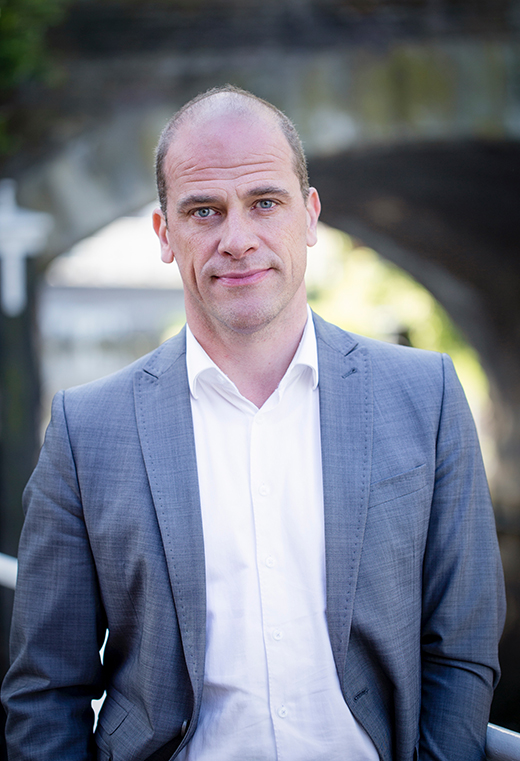
Tuesday 28 October | 08:45 – 09:25
Keynote Presentation
Strategies for Sustainable Success in a Dynamic World
Diederik Samsom
Former Chief of Staff to the European Commission’s Commissioner for Climate Action
Tuesday 28 October | 09:25 – 10:25
Panel Discussion
The Geopolitical Reset: Power, Policy, and the Global Energy Future!
This high-level panel will explore how shifting geopolitical alliances, regional conflicts, and resource nationalism are reshaping the global energy landscape. Speakers will examine the impact of the “geopolitical reset” on investment flows, energy security, and policy decisions across regions. The discussion will highlight strategic responses from governments and industry, and what this means for the future of oil, gas, renewables, and critical raw materials in an increasingly multipolar world.
Moderator

Anne Lycke Advisor, NORSAR
Panellists
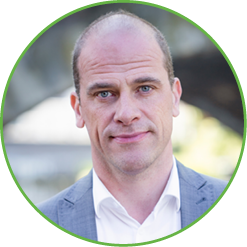
Diederik Samsom Former Chief of Staff to the European Commission’s Commissioner for Climate Action

Johan Leuraers Vice President Policy and Regulatory Affairs, Equinor
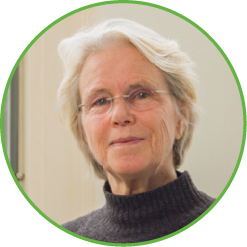
Lucia van Geuns, Strategic Advisor Energy, The Hague Centre for Strategic Studies (HCSS)

Adel El Gammal Secretary General EERA, Professor at Université Libre de Bruxelles
Tuesday 28 October | 11:30 – 12:10
Case Story
DNV Energy Transition Outlook

Theo Bosma Program Director Power & Renewables, DNV
Tuesday 28 October | 12:10 – 12:50
Case Story
Powering Europe – The North Sea’s Integrated Energy System
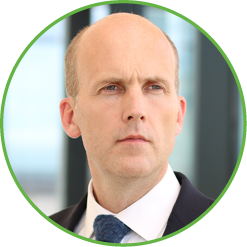
Malcolm Forbes-Cable VP Energy Consulting, Wood Mackenzie
Tuesday 28 October | 13:50 – 14:50
Panel Discussion
Can Europe lead the way with a clear roadmap for new energy innovation and competitiveness?
The energy industry faces uncertainty and shifting priorities, linked to economics, geopolitics and public perception. Yet, the energy supply trilemma remains a critical challenge for Europe as we look to balance energy security, affordability and sustainability. Europe has been a leader across the new energy spectrum – from carbon capture and storage (CCS) to offshore wind.
How do we ensure that our new energy industry remains competitive? Does the EU Clean Industrial Deal (February 2025) provide the right steps to turn a decarbonisation strategy into a growth strategy? What other enablers are there for new energy innovation and growth? How should governments and companies respond in a dynamic and rapidly changing energy landscape?
Moderator

Valentina Kretzschmar VP Energy Consulting, Wood Mackenzie
Panellists

Peter-Paul Lebbink Programme Manager Offshore Windenergy – Policy Support, RVO

Gloria Thurschmid CCS Discipline Lead Geocience, EBN

Marianne Lefdal VP Geoscience GlobalEx, Viridien

Arjan van Vliet Energy Transition Advisor, Shell

Choose the pass that fits you best
and join us this October!
Wednesday 29 October | 08:45 – 9:45
Panel Discussion
The Role of Young Professionals in the Energy Transition
Young professionals play a pivotal role in driving the energy transition through their innovative perspectives, technical expertise, and adaptability to emerging technologies. Whether in academia, research, or industry, they contribute to advancing key solutions such as carbon capture and storage (CCS), hydrogen energy systems, wind power, and geothermal technologies.
With a strong foundation in interdisciplinary skills, including artificial intelligence, machine learning, and data analytics, they are driving innovation and optimization. Beyond their technical contributions, young professionals are passionate advocates for sustainability, actively leading initiatives to reduce emissions, enhance energy efficiency, and promote circular economy practices. Their work spans diverse fields, fostering collaboration between geoscience, engineering, and emerging digital technologies, and their involvement in entrepreneurship and startups further accelerates the deployment of cutting-edge solutions.
Additionally, young professionals are shaping the broader landscape of the energy transition by influencing policies, advocating for climate action, and driving diversity and inclusion within the energy sector.
Moderator

Ruth Chigbo Geologist, Harbour Energy
Panellists

Emily Edmonds Imaging Geophysicist IV, TGS

Kevin Bisdom Geomechanicist, Shell

Kamaljit Singh Associate Professor at the Institute of GeoEnergy Engineering, Heriot-Watt University, Heriot-Watt University

Pwavodi Joshua Senior Research Engineer, Petrophysicist, BRGM
Wednesday 29 October | 10:30 – 11:30
Panel Discussion
Powering Progress: The Role of Technology and Digital in New Energies
The future of energy is being shaped by the powerful combination of innovation, technology, and digitalization. This convergence is driving the development of new energies, improving energy efficiency, and transforming the way we live and work. With digital technologies like AI, IoT, and data analytics, we can unlock the full potential of renewable energy sources, create a more sustainable energy system, and power a low-carbon future.
Moderator

Oscar Abbink Director, Energy Technology and Innovation, S&P Global Commodity Insights
Panellists

Tina Todnem VP Technology Strategy, Portfolio and Partnerships, Equinor

Iain Martin Technology Manager, Net Zero Technology Centre (NZTC)

Malcolm Kent Global Strategy Head for Carbon Storage, Viridien

Jochem van Hove Managing Director EMEA Energy & Resources, Microsoft
Wednesday 29 October | 11:50 – 12:50
Panel Discussion
Critical Raw Materials (in Europe)
This session will examine the growing importance of secure and sustainable access to critical raw materials essential for the energy transition. Experts from industry, academia, and policy will explore Europe’s resource dependencies, supply chain vulnerabilities, and the geopolitical dimensions of raw material sourcing.
The session will highlight strategies for exploration, recycling, and substitution, as well as EU initiatives aimed at strengthening domestic supply.
Moderator

Gaud Pouliquen Sales Director, Bell Geospace
Panellists

Henrike Sievers Co-Chair, Federal Institute for Geosciences and Natural Resources (BGR)

Peter Schmitz Energy and Mining Resource Advisor, Wood Mackenzie

Andor Lips Strategic Advisor Raw Materials, Geological Survey of the Netherlands

Eberhard Falck President, INTRAW International Raw Materials Observat
Wednesday 29 October | 13:50 – 14:30
Case Story
Our Subsurface Dilemma: Defining Capability for a Low-Carbon Future
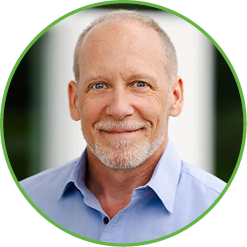
Jeff Lukasik Vice President, Subsurface, Competence Centre International (Exploration & Production International), Equinor
Wednesday 29 October | 14:30 – 15:10
Case Story
Insurance of the
Energy Transition

Rodney Garrard Geo Energy Advisor, Arch Insurance International
Panel Discussion
Pitch Forge Where innovation & geoscience spark
Step into the arena where ideas are forged and futures are shaped. PitchForge is the GET25 Strategic Programme’s high-energy showcase of innovation, where geo meets entrepreneurial spirit. In this Shark Tank-style session, visionary speakers—startups, scale-ups, investors, incubators, and mentors—deliver rapid-fire 5-minute pitches that spotlight their pivotal roles in the financial and innovation ecosystem.
But the spark doesn’t stop there. After the pitches, a live panel discussion will bring together key players to exchange insights, challenge perspectives, and explore how collaboration can turn bold ideas into real-world impact. It’s a space where delivery meets dialogue—and where the future of geoscience innovation takes shape.
Moderator

Habib Al Khatib CEO, Spotlight
Panellists

Jan Jette Blangé Founder and CEO, Canopus Drilling Solutions

Sebastien Lacaze CEO, Lookup Geoscience

Elodie Morgan Co-Founder, Spotlight

Jurjen Boorsma Toastmasters Adam

Onajomo Akemu Assistant Professor, University of Amsterdam

Mathijs van Rijk Senior Investment Manager, Innovation Quarter

Select the access level that suits you
and join us in October!
Panel Discussion
Inclusive Energy Transitions:
Empowering Women, Advancing Equity
Energy is a key driver of the transition towards a more sustainable and equitable world. Beyond its environmental benefits, it contributes to poverty reduction, improved health, gender equality, education, food security, and water access. This session will explore how energy systems can advance social equity while supporting a diverse and fair energy transition worldwide. A special focus will be given to gender balance and social inclusion, featuring a panel of women sharing their careers and experiences in promoting diversity within the energy sector. We will also address gender-sensitive approaches to project development, opportunities for women, inclusive planning, public perception, community engagement, and policies that promote equitable access to energy benefits, ensuring that both women and men participate in and benefit from the transition.
Moderators

Mariane Peter-Borie R&D manager | Consulting, Look Up Geoscience

Azin Karimzadanzabi Researcher Phd Candidate, Civil Engineering and Geosciences, Technische Universiteit Delft | Chair EAGE WGE
Panellists

Elke Mugova Fraunhofer IEG, Women in Mining Germany | Mine Water and Geothermal Energy Specialist | General Secretary of IMWA | Board Member of WiM Germany

Michelle O’Grady Project Manager (GEMINI), Geological Survey of Northern Ireland

Cristina Marras Saipem Solutions Manager, Geoscience and Environmental Surveillance | Chair, UNECE Women in Resource Management Working Group

Dr. Suzanne Hangx Associate professor, Utrecht University

Katrin Löer Assistant Professor in Applied Geophysics, Technische Universiteit Delft
Panel Discussion
Geological Risk Assessment in Energy Transition Technologies: The importance of Modelling Tools and Techniques
In the rapidly evolving landscape of renewable energy and sustainable technologies, geoscience modelling has emerged as a critical tool for optimizing and advancing various energy solutions. This session will delve into the pivotal role that geoscience modelling plays across these key areas: offshore wind, geothermal energy, hydrogen and energy storage, and carbon capture and storage (CCS). We will examine how subsurface modelling plays a crucial role in quantifying and describing project risk, estimating reserves, and formulating project delivery strategies. Additionally, we will examine how these models can serve as effective communication tools among various technical, management, and strategic stakeholders involved in energy transition projects. Join us in this session to explore how cutting-edge geoscience modelling techniques are driving innovation and efficiency in these critical areas of the energy sector. Our expert speakers will share insights, case studies, and the latest advancements.
Moderator

Jeanette Hagan Senior Geoscientist, ZeroGeo Energy
Panellists

Mark Cottrell Technical Director FracMan and Geoscience, WSP

Claudia Sorgi CCS Geomechanics Advisor and Monitoring Champion, SLB

Christine Roche Senior Project Owner, New Energy Solutions and Director, TGS

Sander Osinga Geomechanics Scientist, TNO
Thursday 30 October | 11:50 – 12:50
Panel Discussion
Geoscience Communication and Public Engagement in the Energy Transition: Experiences and Lessons
This session explores the critical role of public engagement in energy transition projects. It brings together researchers and professionals to share insights, experiences, and lessons learned from working with communities affected by, among others, geothermal, wind energy, critical minerals, hydrogen, and subsurface storage initiatives. Through case studies, policy discussions, and innovative engagement strategies, we will examine best practices for fostering collaboration, addressing concerns, and ensuring inclusive decision-making in sustainable energy development.
Key takeaways: Understand the challenges and opportunities in public engagement for energy transition projects. Learn from real-world case studies on community involvement in geoscience. Explore strategies for building trust, addressing opposition, and ensuring equitable participation in energy initiatives.
Moderators

Andrea Cuesta Cano Delft University of Technology

Evgeniia Martuganova Utrecht University
Panellists

Gerdien de Vries Associate Professor of Climate Psychology, Delft University of Technology

Philip Ringrose Professor in Energy Transition Geoscience, NTNU

Kris Piessens Geologist, Geological Survey of Belgium Royal Belgian Institute of Natural Sciences

Marit Sprenkeling Scientist Energy Transition, TNO Vector
Thursday 30 October | 13:50 – 15:30
Dedicated Session
Subsurface Intelligence for Net-Zero: Inside the Geological Service for Europe’s GeoEnergy Atlas
This session will offer an introduction to the European Geological Data Infrastructure (EGDI) and its role within the Geological Service for Europe project (GSEU), with a focus on delivering accessible, harmonised geoscientific data to support Europe’s energy transition – particularly in the context of CO₂ storage development.
Participants will gain insights into the newly published Pan-European Atlas of Sustainable GeoEnergy Capacities, an evolving platform that represents an unprecedented effort to compile harmonised, cross-border data on subsurface resources relevant to geoenergy. Special focus will be given to the CO₂ Storage Atlas, which presents consistent and comparable information on potential storage sites across Europe, which is crucial for supporting infrastructure planning, regulatory frameworks, and carbon management strategies.
The session will explore how EGDI underpins this work by providing digital access to harmonised geological data, as well as the methodologies and data sources behind the Atlas. Attendees will also have an opportunity to explore the data in real time and assess the usability of these tools for research, planning, and decision-making.
Whether you are a subsurface data user, policy advisor, or energy researcher, this session will equip you with both knowledge and experience on how EGDI’s digital infrastructure can support a data-driven CO₂ storage future in Europe, while also enabling broader geoenergy innovation.
Have a question about the GSEU GeoEnergy Atlas? Submit it beforehand and we will make sure it is included in the discussion: https://www.menti.com/al58pdnrg1gw
Moderator

Renata Barros Strategic Communications Officer, EuroGeoSurveys
Presenters

Tjerk Heijboer System Developer, GEUS

Maayke Koevoets Project Manager Geological Survey of the Netherlands, TNO

Ceri Vincent Geophysical Basin Analyst, British Geological Survey

Francesco Pizzocolo GSEU Program Manager, TNO
Day XX October | 00:00 – 00:00
Case Stories
Case Story title
Lorem ipsum dolor sit amet, consectetur adipiscing elit.
Name of speaker
Lorem ipsum dolor sit amet, consectetur adipiscing elit.
Name of speaker



